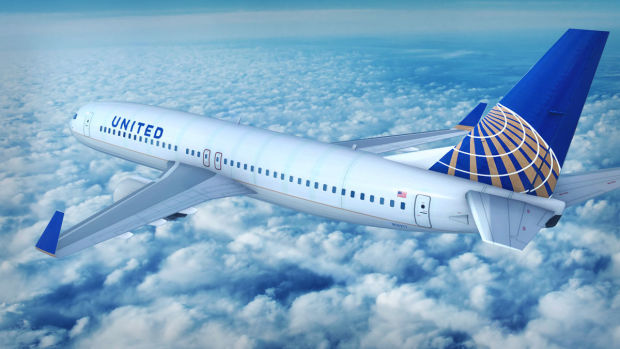
A United Airlines (UAL) -) pilot who reportedly showed up to work under the influence of alcohol was given a six-month suspended prison sentence by a French court.
The 63-year-old American, identified by the newspaper only as Henry W, was set to fly from Charles de Gaulle Airport in Paris to Washington Dulles Airport in Virginia on July 23, Business Insider reported.
DON'T MISS: Tesla's EV Range Is Far From Accurate (And That's on Purpose)
The pilot told the court that he had only drunk two glasses of wine the previous night, but police officers said the pilot was "showing signs of obvious drunkenness" when he arrived for work at 3 p.m.
The pilot had a blood-alcohol level of 0.132%, more than six times the legal limit for pilots in Europe and three times the Federal Aviation Administration's limit.
“He was staggering slightly, his eyes were glassy, and his mouth pasty," a police officer told the court.
The pilot was also fined 4,500 euros, according to the outlet, and his pilot license was suspended for a year.
Cases of Drunken Pilots
"The safety of our customers and crew is always our top priority. We hold all our employees to the highest standards and have a strict no-tolerance policy for alcohol," a United Airlines spokesperson said in a statement to Insider. "This employee was immediately removed from service and we are fully cooperating with local authorities."
This incident follows a case last month when a Delta Airlines (DAL) -) pilot was arrested in Scotland last month after he showed up drunk for a New York City-bound flight and forced the trip's cancellation, ABC News reported on June 21.
The pilot, identified Lawrence Russell Jr., 62,, was booked on suspicion of violating the U.K.'s Railways and Transport Safety Act 2003, which bars pilots and other transport operators from being impaired on the job.
The flight was "canceled and customers were reaccommodated on other flights," Delta said in a statement.
And last year, a JetBlue (JBLU) -), James Clifton, 51, was removed from the cockpit after a Transportation Security Administration agent told the police that he appeared intoxicated.
When police boarded the aircraft, they breathalyzed the man and found him about four times over the FAA limit of 0.04%.
Clifton told authorities he'd had seven to eight drinks before he got on the aircraft, which was bound for Fort Lauderdale, Fla.
FAA data show there are at least a handful of alcohol violations every year among commercial pilots who fly for airlines or charter operations, who are also subject to random alcohol tests, the Atlanta Journal Constitution reported.
Collect 'Reliable Data'
The number of alcohol violations among pilots over the last 20 years has ranged from 5 in 2013 to 25 in 2019. There were 7 pilot alcohol violations in 2022, according to the FAA.
In June, a report by the National Academies of Sciences, Engineering, and Medicine recommended that the FAA update its intervention and substance programs for pilots and flight attendants.
In addition to safety being paramount, training new pilots and flight attendants is a long and costly process, and job loss can have detrimental effects on all aspects of a person’s life.
Therefore, the report says, it is in the interest of the workforce, the FAA, and the airline companies to support effective treatment programs for substance misuse.
The report concluded that the available data do not support suggestions that FAA’s programs should fully serve as a model for other segments of the transportation industry.
“Collecting and maintaining reliable data will be the first step in allowing the FAA to improve these substance misuse programs,” said Richard G. Frank, chair of the committee that wrote the report, and the Leonard D. Schaeffer Chair in Economic Studies at the Brookings Institution.
The FAA should also encourage airlines to remove barriers to early identification and treatment, the report said.
While job termination is reasonable for employees who do not meet treatment requirements, the report said airlines should find ways to make pilots and flight attendants more likely to self-report early without fear of losing their jobs, such as providing opportunities for disclosure of a substance use problem outside of professional performance reviews.







